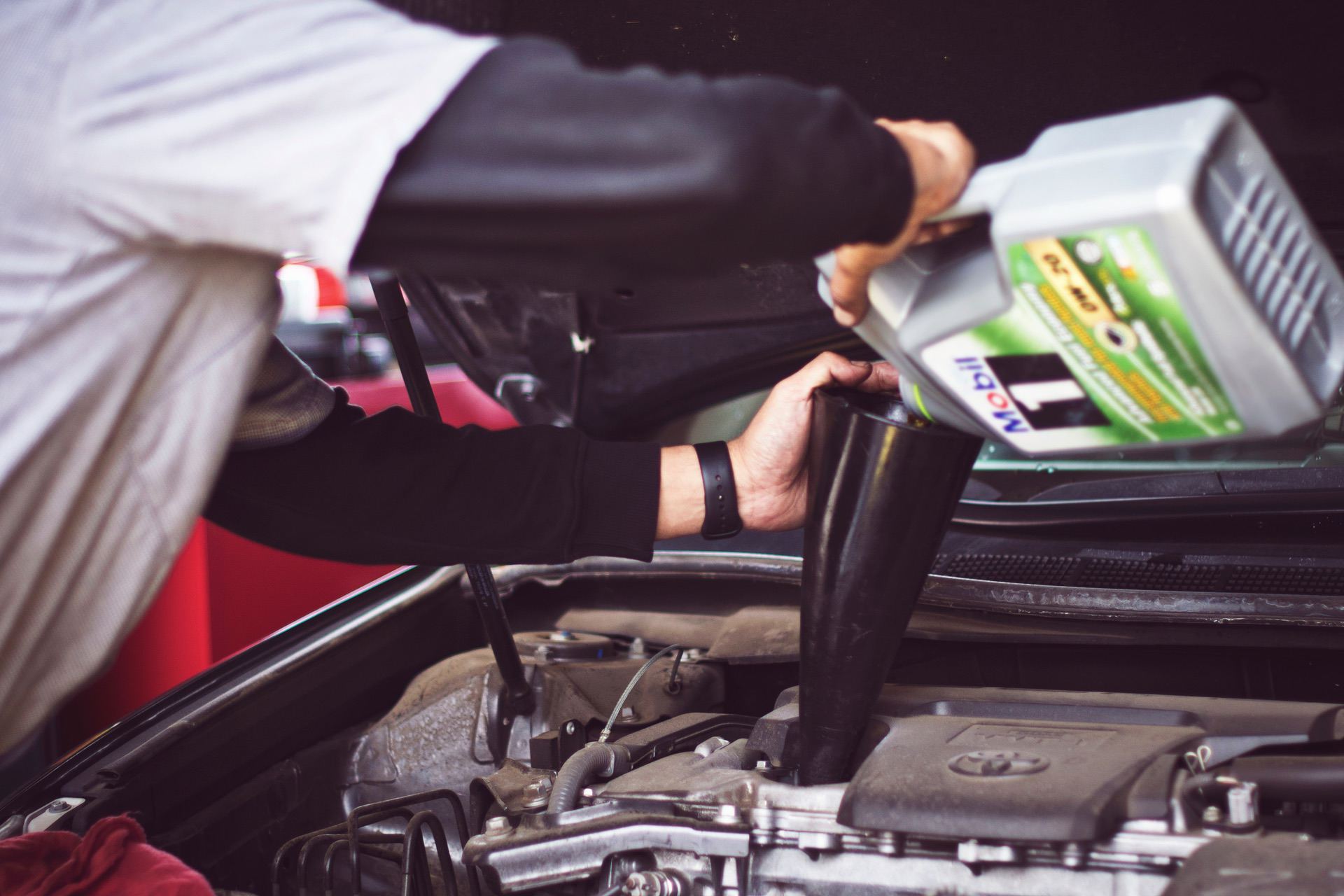At Ox-In-Flames we want our customers to be able to drive safely in vehicles on which they can rely. We have a saying….
“Whatever the speed, the vehicle has to be able to stop”.
We know that worn brake pads are among the most common problems we discover on the vehicles we see. We therefore hope this article will let you know what to be aware of, how to save you money on your brakes, and stay safe at the same time.
Dangers
Faulty brakes tend to lead to less efficient stopping, which means longer stopping distances, the danger of skidding and even, in the worst cases, total brake failure. All these issues can trigger accidents, and we want to help you prevent that.
We also want to save you money because worn pads can cause unnecessary brake disc damage.
Brakes in Action
A moving car creates kinetic energy. Stopping a car involves the brakes getting rid of this kinetic energy, by using friction’s force to convert the energy into heat.
When you press the brake pedal, a connected lever puts pressure on a piston filled with hydraulic fluid that connects to the master cylinder. The fluid moves along a system of pipes into other cylinders that are positioned next to the brakes attached to each wheel.
This hydraulic system effectively multiplies the pressure of your foot into enough force to apply the brakes and cause the car to stop.
Modern cars tend to be fitted with disc brakes that consist of a brake disc, a brake calliper, and a brake pad. The depression of the brake pedal leads to the hydraulic fluid causing the brake calliper to push the brake pad against the brake disc. This rubbing of the pad against the disc creates the friction that converts the kinetic energy into heat in the brake pad.

Modern brakes are a complex combination of components and the majority of cars these days have an ABS (Anti Lock Braking System) that involves sensors recording wheel speeds and a computer controlling the application of the brakes in emergency conditions.
Such technology means that the majority of faults we find in a car’s braking system involve the pads and discs, which are friction components subject to wear that need replacing from time to time.
Making brakes last longer
Progressive braking is done by the brakes being applied gently at first, then pressing the pedal increasingly harder in a smooth transition. This doesn’t mean you cannot brake firmly but progressive braking is key to making the application develop gradually rather than simply stamping on the pedal.
Used correctly progressive braking can:
- Prevent the locking of wheels
- Prevent a vehicle skidding
- Save your fuel
- Give other road users time to react to your driving
- Reduce wear on your brakes and other related mechanical components
One of the likeable things about progressive braking is it can save you money!
Being Aware of Brake Faults
Whether you’ve been using progressive braking or not, at some point, brake repairs are necessary on any car. If you have any concerns an inspection is crucial so you are safe and not sorry.
What you should look out for include:
- Any noise like a high pitched squeal, grinding or ringing when you apply the brakes
- Any vibrations while braking
- An unusually soft or hard brake pedal
- The car’s stopping distance increasing
- The brake fluid light coming on
- The ABS light coming on
- The brake-pad-wear light coming on
When should you replace your brakes?
You should always replace your brakes as soon as there is an issue. Vehicle maintenance is about prevention rather than cure, so have your brakes inspected when the vehicle is serviced or when you suspect a problem.
Our technicians check brake pads and discs and compare measurements with your manufacturer’s specifications to ensure there is sufficient service life and you can drive safely until the next brake check.
This picture demonstrates differences between a new braking component and an old one that needs replacing. It emphasises how crucial accurate measurements are over a basic visual inspection.

Along with checking pads and discs our technicians also test brake fluid, as this has a finite service life and can affect braking performance.
At Ox-In-Flames we put safety first. So if you have any concerns about your brakes or you’d just like to be on the safe side then book in for a quick inspection today.
Call Ox-In-Flames on 01639 701604



